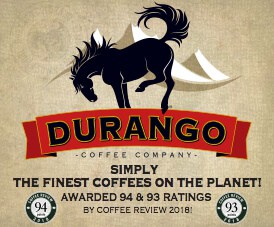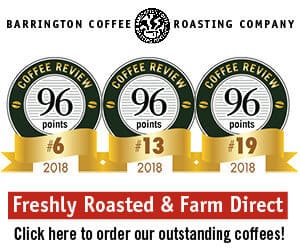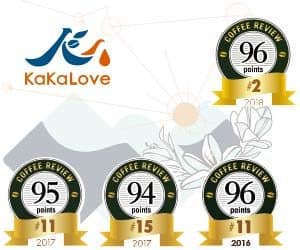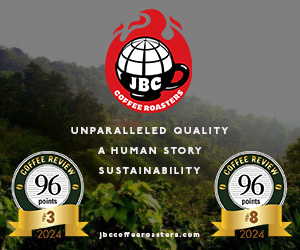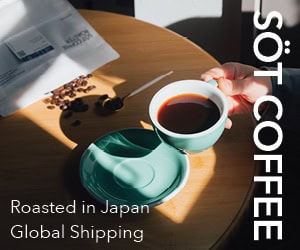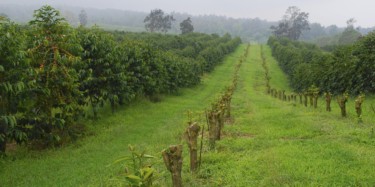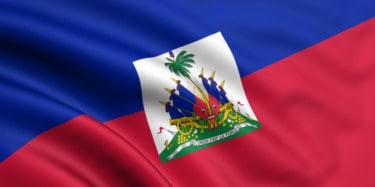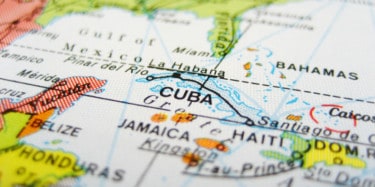Like all Haitian coffee, this is produced entirely from trees of the strain of the Typica variety of Arabica originally planted in Martinique. Haitian Bleu is a protected name for a coffee produced by a large federation of Haitian small-holding farmers called Cafeieres Natives. All Haitian Bleu coffee is washed or wet-processed, unlike most Haitian coffee, which is prepared by the natural method.
SEARCH RESULTS
Readers’ Nominations: Trends and Successes
Over the years we have used our annual readers’ nominations story to attempt to find and celebrate regional roasting companies whose coffees we have never reviewed before. This year we ended reviewing six coffees from companies that have never appeared in Coffee Review, and five from companies that have. Overall, we tested forty-three coffees from twenty-five regional roasting companies. Once
Haitian
Bonlife Coffee is a quality-oriented small-batch coffee roaster located in Cleveland, Tennessee dedicated to the motto “Drink a Better Story.” Bonlife donates 1% of its sales to a variety of environmental programs through its membership in the “1% for the Planet” movement, as well as contributing to other coffee-associated organizations including Water Missions International and Coffee Kids. Visit
Haiti
This coffee is certified Fair Trade, meaning it was purchased from small-holding farmers at a "fair" or economically sustainable price. Grown in the geographical region of Haiti that the indigenous Taino Arawak people referred to as Xaragua. Café Xaragua’s goal is to maintain and refine the traditional culture of Haitian coffee cultivation. Visit www.cafexaragua.com or call
Haiti Ranquitte EcoCafe
Clive Coffee is a small roasting company based in Portland that is "completely devoted to fresh, beautiful coffee." This coffee was supplied by EcoCafe Haiti, a newly formed coffee cultivation and processing organization aimed at promoting economic self-sufficiency in rural Haiti. Visit www.clivecoffee.com or call 800-520-2890 for more information.
Island Coffees: Hawaii and the Caribbean
This month's reviews consider coffees from two famous island growing regions -- Kona and the Blue Mountains of Jamaica -- together with a handful of coffees from less famous island origins: Puerto Rico, Haiti, the Dominican Republic, plus a scattering of non-Kona Hawaii coffees. The conclusions, rather sadly, are predictable for coffee insiders but perhaps a surprise for more casual coffee
Haiti Coffee – A Glimmer of Hope
A few weeks ago Kenneth Davids and I were asked to roast, cup and assess two samples of Haitian coffee. This request came in before January’s devastating earthquake and its horrific consequences struck Haiti. As I write, news outlets continue to report on the tragedy while charitable organizations step up their efforts to supply labor, material and money to those in need. In light of this
Haitian Bleu
Haitian Bleu is the trademarked name for a coffee produced by a large federation of Haitian peasant farmers called Cafeieres Natives. Coffee Masters is an influential, quality-oriented wholesale roaster located in a Chicago-area suburb. Visit www.coffeemasters.com or call 800-334-6485 for more information.
Caribbean Coffees 2007: Jamaica, Puerto Rico, Haiti, Dominican Republic
This year's review of coffees from the islands of the Caribbean is notable as much for what isn't here as for what is. Samples of Caribbean coffees were hard to come by this year, even from Jamaica's famous Blue Mountains. And only the tiniest smattering of offerings turned up from Haiti, the Dominican Republic and Puerto Rico. This despite all of these islands' long and distinguished coffee
A Snapshot from the Caribbean
Coffee reviews are necessarily more provisional than reviews of bottled beverages like wine. Not only is coffee subject to a much wider range of creative input, from grower and mill owner through roaster to the consumer who finally does the brewing, but the green coffee also changes through the crop year after it has been harvested and rested. I often describe a coffee review as a useful and
Caribbean Coffees
However closely Caribbean coffees resemble one another in their full, rounded coastal flavor profiles, their individual stories are quite different. The Blue Mountain coffees of Jamaica are among the world's most expensive, sought after by price-is-no-object romantics, while resented by many coffee professionals for their high price. The Yauco coffees of Puerto Rico represent a successful revival
Haiti – Green
Produced by a federation of 20,000 Haitian peasant farmers, this is a good, promising coffee with sweet, ingratiating aromatics. However, it was opaque without dimension, and muddy. Originally reviewed by a panel as a green coffee. Haitian Bleu is the trademarked name for coffee produced by a federation of nearly twenty thousand Haitian peasant farmers called Cafeieres Natives. It is processed at


